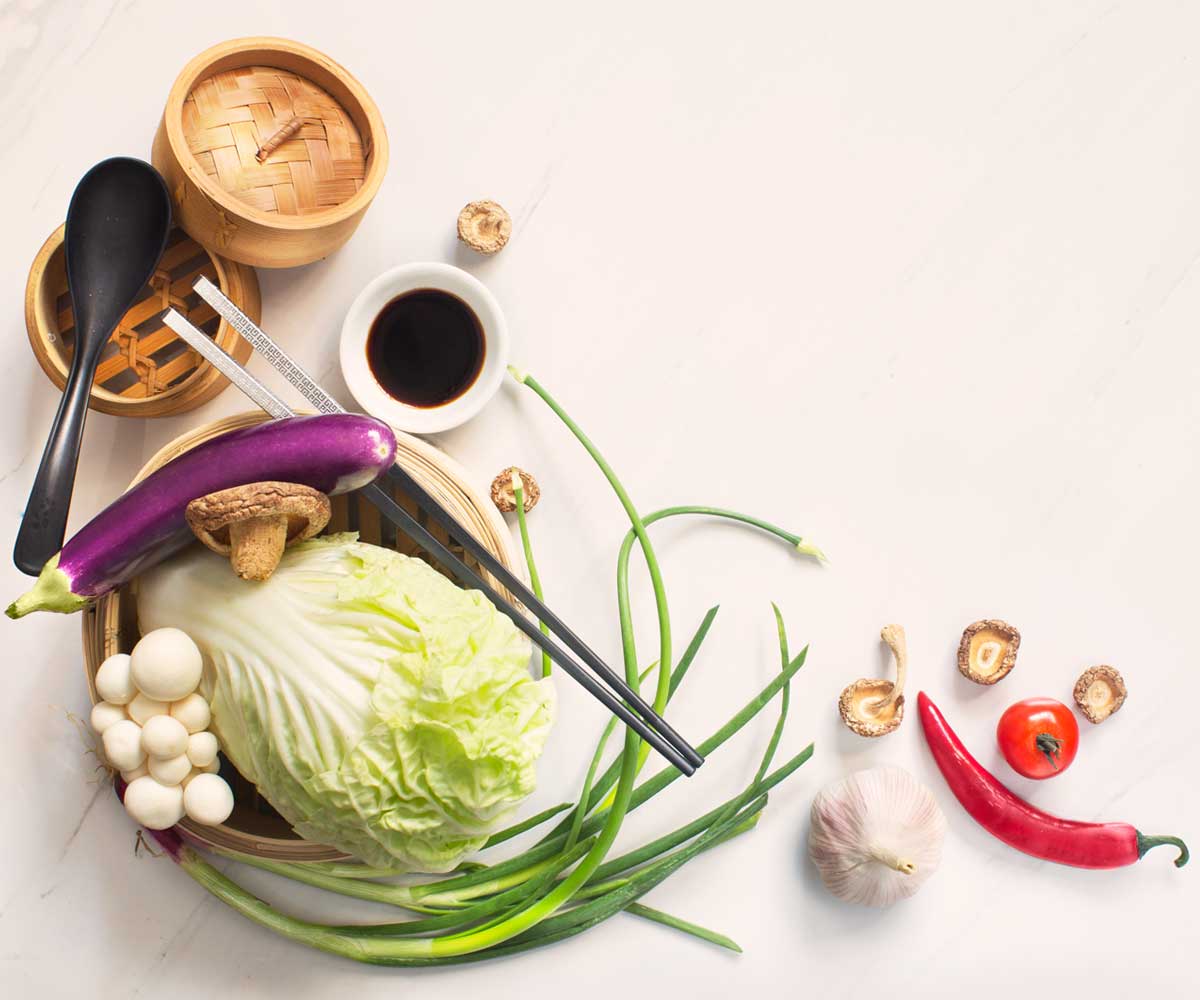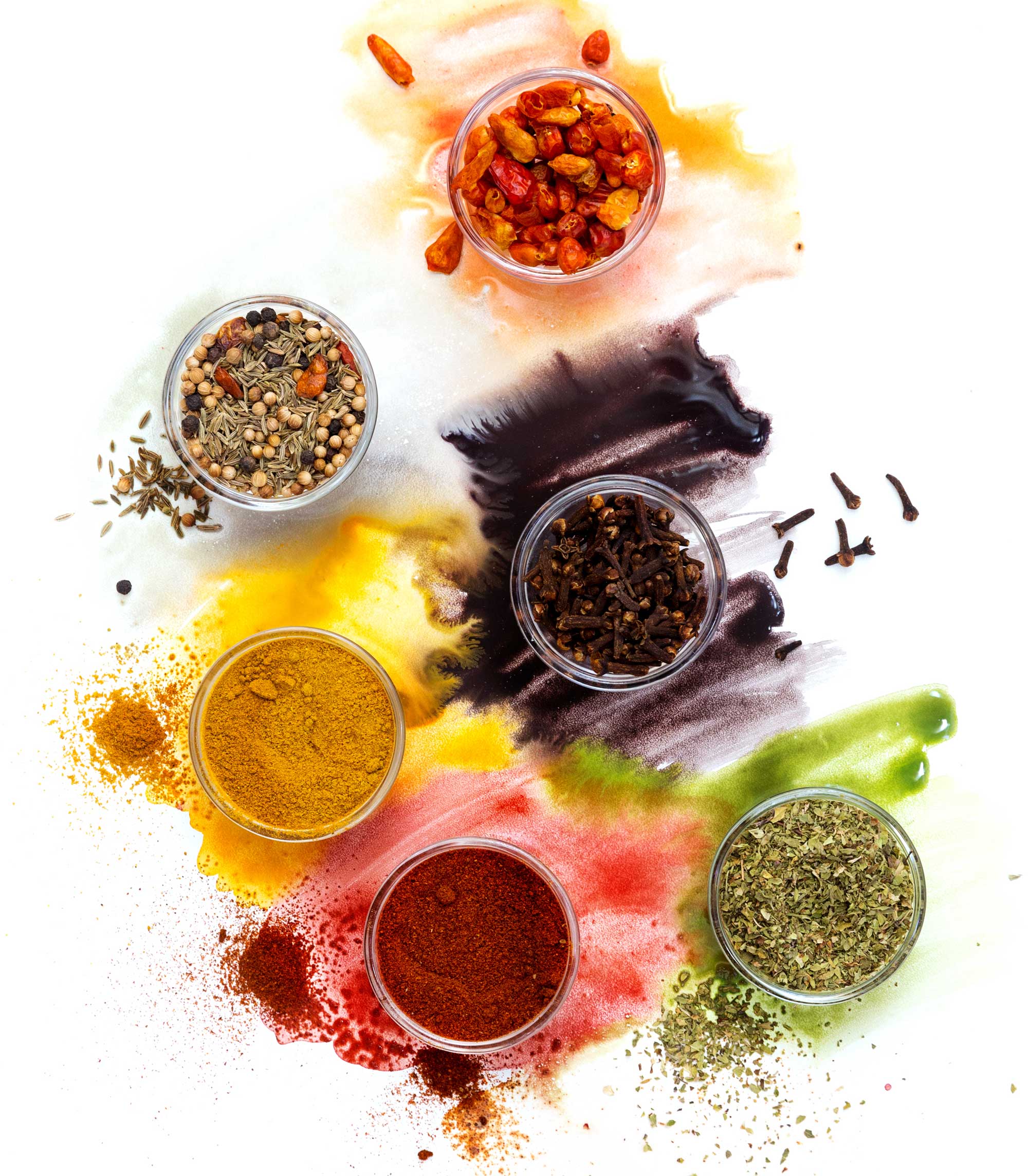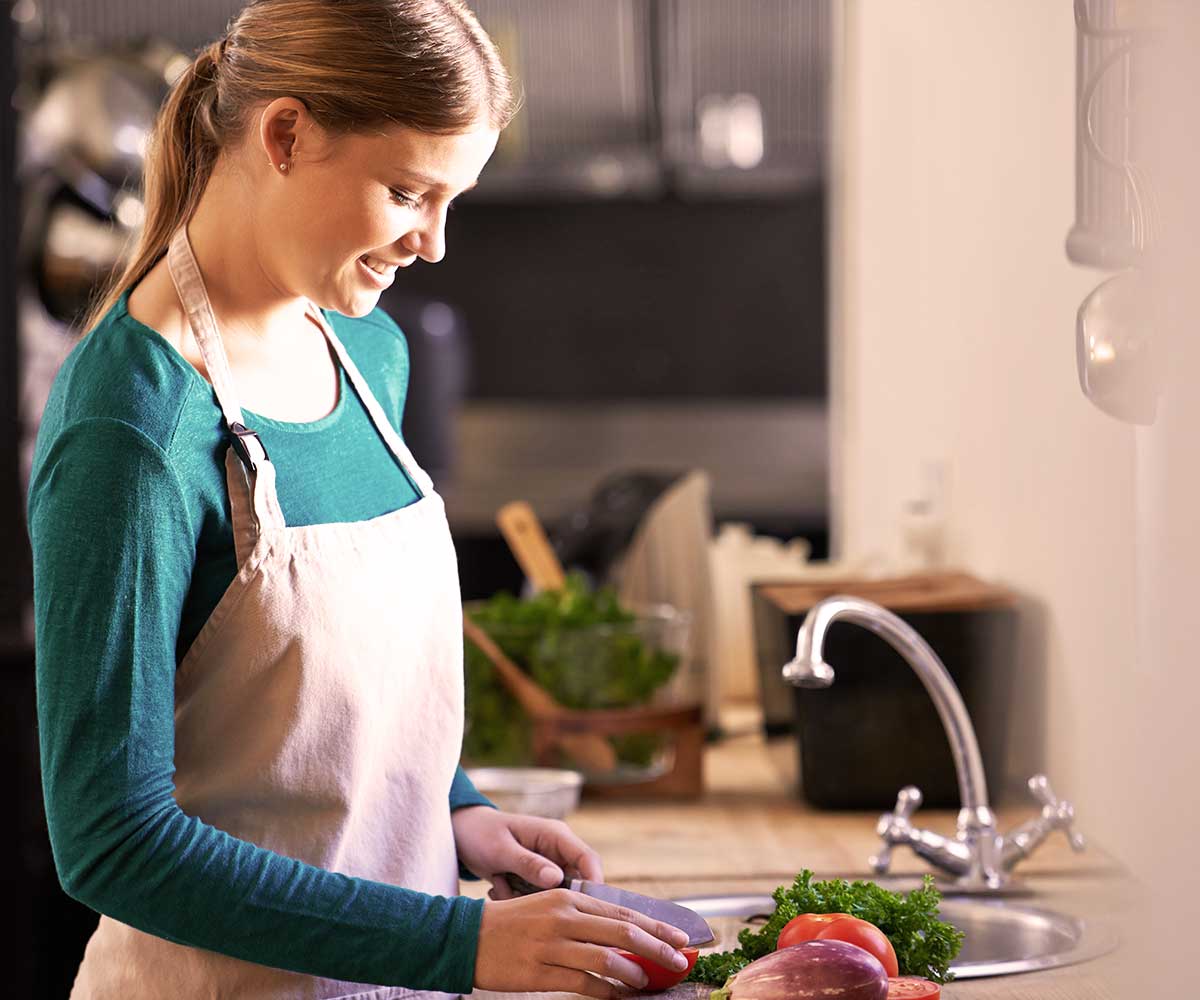While what we eat is important to maintain health, how we prepare it is also important. According to ancient wisdom our state of mind while we’re cooking directly affects the vibrational energy and the quality of the food. Therefore, just by cooking consciously in the kitchen we can turn every meal into a healing medicine. Here experts teach us how.
In many cultures there’s an emphasis on intention and emotion in cooking. In the Greek tradition it’s customary to cook and serve food with ‘agapi’ (unconditional love) for good energy, and the Bhagavad Gita, a sacred Hindu scripture, teaches that the intention or mood of the person when cooking is actually transferred to the food.
So it seems that to manifest a delicious meal that nourishes both body and soul, positive vibes are vital ingredients.
“Cooking becomes therapeutic when we practice kitchen mindfulness – a state of active, open attention to the present moment which awakens us to the experience of nourishing ourselves,” says Melanie Albert, US-based intuitive cooking expert at EXP Nutrition and author of A New View Of Healthy Eating.
“Therefore, by consciously thinking about the ingredients we choose, their preparation and the way we cook and eat, it can become a joyful act with many health benefits,” says Melanie.
Chara Caruthers, founder of Bliss Body & Soul and author of the upcoming book Eat Like You Love Yourself adds, “Life is sacred and cooking should be approached from the point of view that we’re feeding that, so our mindset when we enter the kitchen should be ‘I am feeding my joy.'”

Cooking as a ritual
A sacred vibe in the kitchen means you’re creating a space that feels good and the energy is interacting with the process of cooking on a positive level.
“Honour the sanctity of the kitchen by making sure you’re in a good frame of mind,” says Chara.
“Make it clear to your family that cooking is a really important time to be calm and equally ensure that the kitchen surfaces are clean and tidy,” she says.
“Set the intention that this will be a joyful experience which can include music playing in the background, letting in natural light or being barefoot as this can help you feel more grounded. The idea is not to have too many things stand between you and your food so to heighten this, use a mortar and pestle to hand-grind spices or knead the dough as this brings you closer to the ingredients and allows your good vibes to transmit to the meal you’re preparing.”
Additionally, maintaining mindfulness while handling the produce keeps you focused and allows you to notice the moment-to-moment sensations such as their colour, touch and smell.
“With the same focus create a nice rhythm with your knife while cutting your leafy greens, turn your vegetables into nice, even shapes and then line the ingredients up in the order you’re cooking, all of which will put you in a state of flow and allow you to really relish the moment,” says Melanie.
When it comes to kitchen utensils, having a level of awareness of what they’re made out of is also a good step in the right direction for better health and for a more wholesome kitchen environment.
“There can be lots of nasty chemicals and toxic coatings on pots and pans which have an impact on food and on the environment, so it’s best to use earthenware where possible,” suggests Chara.
Favour bamboo cutting boards, wooden bowls, copper pots, natural baking paper, and wooden or stainless steel utensils.

Use creative intuition
Choosing the ingredients intuitively and then relying on your own cooking knowledge to make a meal out of it requires all five senses to decipher what the body savours the most.
“Shopping intuitively means immersing the senses into the beautiful colours of the fruits and vegetables surrounding you, including the aromatherapy of the herbs or edible flowers. Tune in to listen to what your body desires to eat the most and base your shopping choices on that,” explains Melanie.
Melanie suggests, because the process of cooking actually begins when you’re shopping for the ingredients, try buying from farmers’ markets because what our bodies naturally need for good health is foods that are in season.
“Buying locally grown foods will keep you in harmony with the natural cycles of nature and because they’ll be at their harvest peak, it means more fresh and nutrient-dense meals.”
In order for intuitive shopping and then cooking to become feasible, Melanie advises people to begin by using a recipe as a guide and gain experience of some basic cooking methods.
“Then once you feel sure about food and flavour combining this will give you the confidence to trust the intelligence of your body to mix and match and ‘design’ meals that are good for you instinctively.”
“The senses are the bridge between our outer and inner worlds, so it’s really important we trust the information they transmit to us, as it’s a way we can confirm which foods are healing for us to further our wellness,” adds Chara.
“To be truly creative in the kitchen it really does come down to having a degree of awareness of what ingredients taste good together or combine best for their healing potential, including taking into consideration who you’re cooking for and the availability of certain ingredients,” she says.
If you haven’t cooked a meal in a while because you’re pressed for time, reconnecting with the kitchen allows us to understand our place in the world.
“Reconnecting to cooking is therapeutic when it becomes a natural part of our lives again because we’re getting the nourishment it provides us. It allows us the time to slow down, it connects us with nature and brings us more in tune with our body’s needs internally,” says Melanie.
“It’s also a great way to support weight-loss goals, improve overall health and it naturally crowds out processed foods.”
Eat in harmony with your loved ones
Breaking bread with family and friends has both social and individual benefits.
Set a beautiful table with fresh flowers and plate the food nicely.
“We eat with our eyes first and this sensory experience also facilitates proper digestion,” says Melanie. Research supports that eating with family from an early age is associated with positive effects on diet later in life and that the more often people eat with others, the more likely they are to feel happy and satisfied with their lives.
In her book, The Path of Practice: A Woman’s Book of Ayurvedic Healing, Maya Tiwari explains that to increase your level of connection with food, eat with your hands as they act as conduits of the five elements: thumb is space; forefinger, air; middle finger, fire; ring finger, water; little finger, earth.
“When we eat with our hands the five elements within them begin to transform the food and make it digestible even before it reaches the mouth and enhances inner balance.”
“After having an amazing meal that has fed us on so many levels, it naturally opens us up to feel gratitude and that brings our cooking experience full circle,” Melanie adds.


